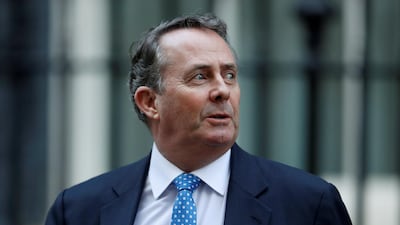As Britain staggers towards its scheduled departure from the European Union at the end of this month, the country is divided. Amid limited progress on trade deals and frequent economic warnings, British MPs cannot agree on a suitable path forward. Prime Minister Theresa May might be in power, but she does not appear to be in charge, and millions of Britons are looking on restlessly. And yet, Brexit is not merely a British challenge, but a global one.
Markets dislike uncertainty, and business leaders in the UAE and wider GCC will be keen for the process to reach a stable resolution. In truth, there is cause for optimism. The UK and the Gulf have a long history of fruitful relations. Not only will this relationship endure Brexit – it could grow even stronger.
One of the most convincing arguments wheeled out by the exponents of Brexit is that by unshackling itself from an overbearing EU, Britain will be able to negotiate its own trade deals and reap the rewards. Given the UK's established trade links with the GCC, the likes of the UAE, Saudi Arabia, Bahrain and Kuwait will be in pole position. Gulf states are already the fourth-biggest non-EU export market for the UK. And on a recent visit to the UAE, the UK's international trade minister Liam Fox laid out plans for bilateral trade amounting to £25 billion by 2020.
For decades, the GCC has tried to negotiate a free-trade deal with the 28-member EU, but it is yet to materialise. Negotiating one with Britain alone is likely to be less thorny. Meanwhile, the dip in the British pound after the Brexit vote in June 2016 has made British imports more economical for Emirati businesses, and trips to the UK cheaper for UAE residents. Some 400,000 UAE visitors are expected on UK streets in 2019 alone. After Americans, they are the highest-spending and longest-staying tourists in Britain.
The future looks bright for the relationship between Brexit Britain and the UAE. But Brexiteers should not underestimate the complexities of negotiating trade deals. In reality, such accords can take years, as Britain has no doubt discovered since invoking Article 50 in March 2017. And with the boycott of Qatar by the Arab Quartet, who accused Doha of supporting international terrorism, the GCC, Britain will have to deal with more than one entity. Britain cannot necessarily offset the immediate negative impacts of Brexit with an expeditious GCC trade deal. But there is no doubt that the longstanding ties between Britain and Gulf states will continue to strengthen, long after Brexit reaches its messy conclusion.

